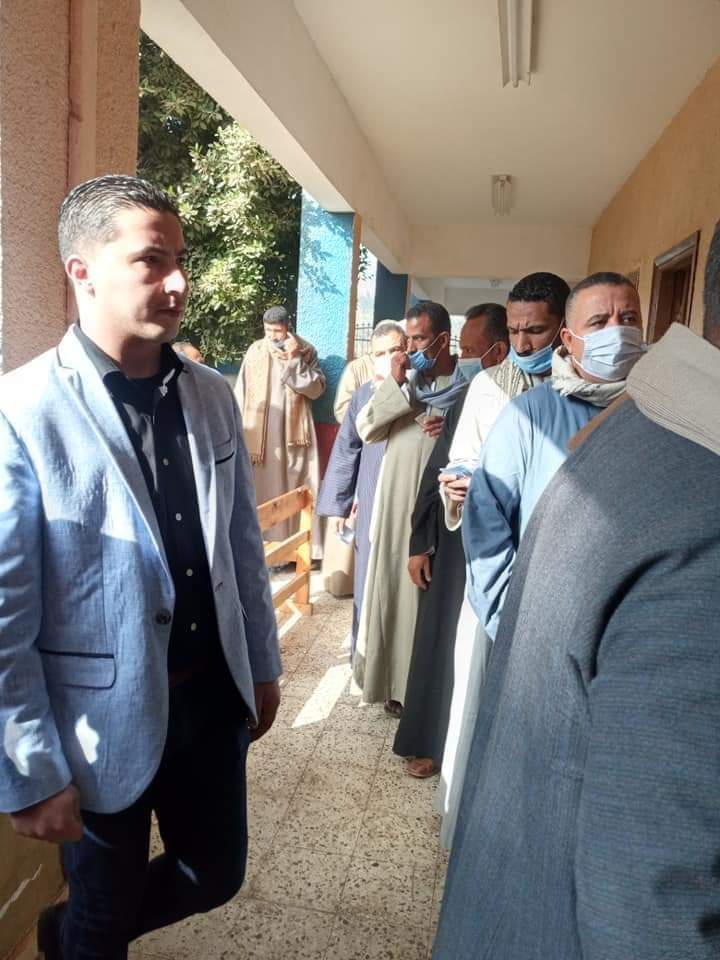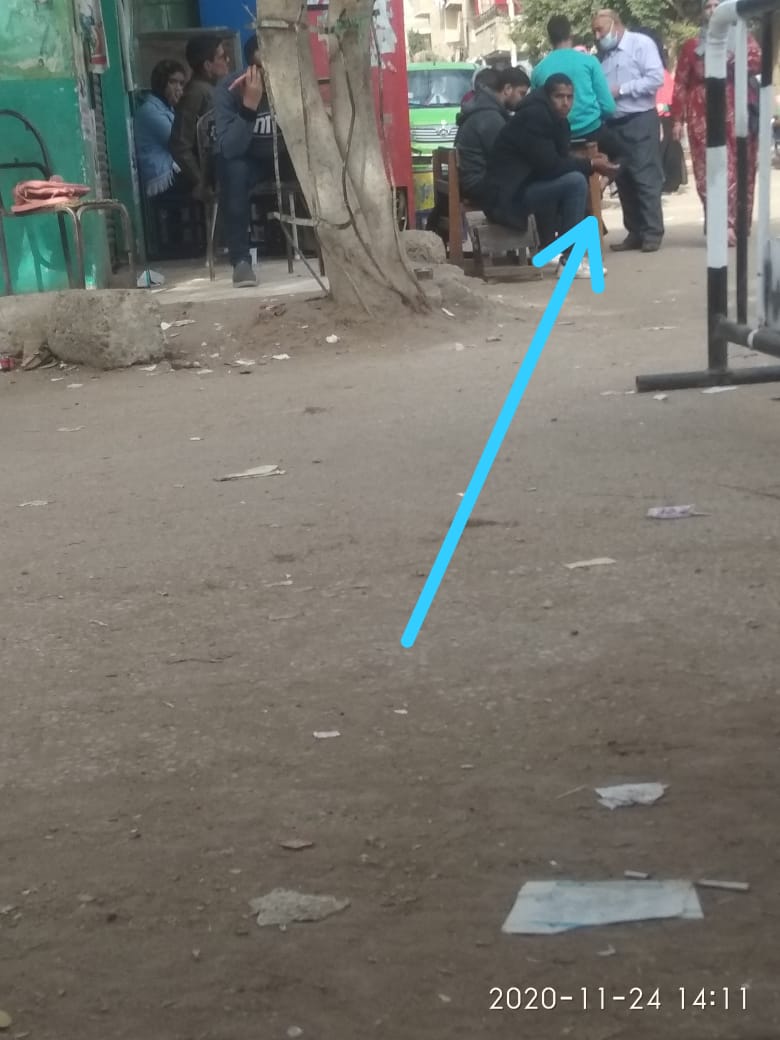24 November 2020
The Final Statement of the runoff round of the first stage of parliament elections 2020
The Elections Observatory at the Egyptian Alliance for Human Rights and Development
Hot Strong Competition at Last Steps
Analyzing the Electoral Scene of the end of the first stage runoff round
The voting boxes were closed at 9 PM in the most of voting committees of the runoff round except those where there were voters who have not voted yet because of the usual intensity in the last moments of voting when it is the end of the electoral process in 13 governorates where the runoff round took place for 110 seats distributed among 54 constituencies where 220 candidates were competed among whom 87 were independent and 133 partisans as their parliamentary backgrounds are differed among 56 current parliamentarians and 164 new competitors who aspire to win the seat. The runoff round lasted for three day for Egyptians living outside Egypt and for two days for Egyptian living inside Egypt in a societal scene whose features and characteristics can be monitored as follows:
Firstly: this runoff round had data for deciding in and announcing winning which was different from that in the first round since article 23 of the law no. 46 of 2014 states that in the first round in individual system elections, the candidate who had the absolute majority of voters is announced to be nominated in such constituency; the matter which may be translated by the equation (50% + 1) which was decisive for the winning of 32 candidates distributed among 18 constituencies within 4 governorates. On the other hand, unless this equation is achieved, then the candidate should go to runoff round according to the article which mortgages the winning that “if the previously mentioned majority is not achieved for one candidate or some candidates, runoff round is to take place among the most-voted candidates as their number is defined by double the competed upon seats and so in this case it should be announced the number of candidates which equal the number of seats and who get the most votes.
Secondly: in its second day, the electoral process of the runoff round has witnessed a crucial treatment of delay phenomenon in opening the voting committees since the Egyptian Alliance observers did not monitor any delay cases or any absent employees or judges during the time of voting in a notable positive behavior and which is responsive to the recommendation of the Egyptian Alliance in regard to the distribution of judges as for the geographical scope and knowing about the nature of the environment with which the supervising team will deal.
Thirdly: the second day of the elections has witnessed medium to high voting densities which consistent with runoff rounds and the desire of candidates to determine it in the last steps without the knowledge of their competitors in an electoral behavior reflecting experiences and skills in managing the electoral process of the candidates and which play a crucial role in the final results of the electoral process.
Fourthly: the runoff round showed the clear variance and difference of voters’ behaviors and their interaction with the electoral process according to their different geographical and tribal environments in governments and constituencies, as at the time when the alliance’s observers monitored limited to medium turnout in urban constituencies and governorates’ capitals to the extent that some candidates were live on social media pages to address voters to go to voting committees (such as the independent candidate Haitham Al Hariry in Moharam Bk constituency in Alexandria), the turnout in rural constituencies and Upper Egypt was from medium to high to the extent that the school complex in Com Zamran Village (the home land of the independent candidate the major general Ashraf Al Maqrahy), Al Wafa’a (the homeland of the candidate Mohamed Emara) in Al Dalingat constituency in Al Behara, Al Dar Village (the homeland of the candidate Bahey Amen) and Al Zinaya District in Luxor have witnessed unprecedented turnout and crowding which reached to 80% of those who have the right to vote.
Fifthly: different reasons behind voters’ interest in voting according to the nature of electoral constituencies and their direct relation with candidates, as at the time when tribal and geographical relations motivate participation in rural constituencies, the reasons of participation in urban constituencies and cities were related to what is provided by candidates from gifts, commodities and money which all represented violation against electoral rules and regulations, however; this did not prevent their effect since the alliance’s observers monitored crowding and density of voters in front of the committees 34 and 35 in Abd El Monem Primary School in Al Badrasheen constituency in Giza, the committees 218 and 219 in Al Qasya Sports Club in Assuit, the committee 46 in Al Shaheed Abd El Aziz Primary School in Edfo constituency in Aswan, the school complex in Com Zamran and the Agricultural Society in Al Sakran Village in Al Dalingat constituency in Al Behara.
Sixthly: the electoral process of the runoff round of the first stage has assured the scenes and conclusions which were previously monitored in previous voting rounds in regard to the absence of middle class, employing and educational sectors which played essential role in elections in addition to defining the nature and formation of parliaments in front of clear appearance of marginalized groups and poor classes in relation to grants and aids they get to participate; the issue which needs dialogue and treatment with political and executive inputs.
Seventhly: in the second day of the elections, there was a status of tension because of the hot strong competition among candidates since the observers of the Egyptian Alliance for Human Rights and Development monitored clashes and quarrels between candidates and their supporters the most prominent of which was that between Dr. Abd El Ghaffar (Al Tagamoaa) and Al Badry Al Malawi (Mostakbal Watan) in Nagaa El Saah Commerical School in Idfo constituency in Aswan and also that between the candidate of Mostakbal Watan Party and the candidate of Al Islah Wa Al Tanmiya Party in Malawi constituency in Al Minia. Also the chamber of following up the elections in the Ministry of Local Development has announced that the candidate Ahmed Mostafa Abd Wahad (Homaa El Watan) has exposed to shooting in front of his house in Com Awsheen in Tamia Sinoras constituency in Bani Souif.
Eighthly: there were some electoral violations such as distributing commodities and foodstuffs in addition to making use of charities to mobilize their beneficiaries in front of voting committees among objections and complaints by the candidates; the matter which lead some candidates to withdraw from the runoff round in Dayrout and Al Qoasya constituencies in Assuit such as (the major general Ahmed Abd El Gawad (independent) – Hamada Al Awad (independent) – Shaheen Al Kilany (independent) justifying that by such practices and excesses which are violations and should be investigated by the National Election Commission to be confronted in the future elections.
Ninthly: women continued and their participation and turnout to vote as the most prominent positives in the electoral scene especially within the existence of female candidates who run for the runoff round for individual seats since the alliance observers have monitored wide voting from women and girls in the committees (178 – 179 – 180 – 181) in Nasr Primary School in Abo Mana’a Village in Qina, the committees (30 – 31 32) in Hila Al Azhar Primary Institute in Al Fashin in Bani Souif and the committees (16 – 17 -18) in Al Shaheed Atef Al Islamboly in Al Badrasheen constituency in Giza.








